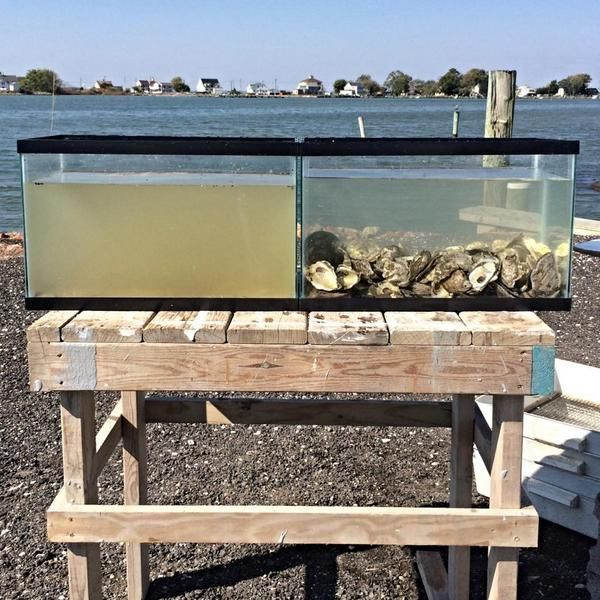Health Benefits Of Oysters: Protein, Minerals Packed Into Nature’s Most Helpful Mollusk

They say oysters are an aphrodisiac — they being scientists in 2005. But the sexual health benefits notwithstanding, oysters have a lot of other great qualities to offer. They deliver 16 grams of protein per 6-ounce serving; they’re rich in vitamins C and B-12; and they’re loaded with zinc, selenium, and iron.
And, if you happen to care about the environment, they also happen to act as a natural filtration system, as illustrated here:
Want to know what oysters do for the environment? The water in both tanks is the same. The one on the rt has oysters. pic.twitter.com/jLeZ2RRAqo
- Steve Vilnit (@SteveVilnit) October 18, 2014If farmed safely (that is, not from polluted areas), oysters will not only filter out the dead algae that once inhabited the water; they’ll also make the water cleaner for consumption. As seafood sustainability expert and owner of the tweet Steve Vilnit explains, oysters help subsidize the cost of chemical filtration. Where sewer systems demand between $500 and $1,000 per pound of nitrogen, oysters lower the costs to only $5 a pound.
The net effect is more filtration and less nitrogen in our drinking water. By all accounts, this is a good thing. Excess nitrogen consumption can lead to fatal consequences among infants younger than six months old and pregnant women. Often, this risk is fairly low, but given how clear the water on the right of that picture is, we’re probably better off keeping oysters around, just to be safe.



























